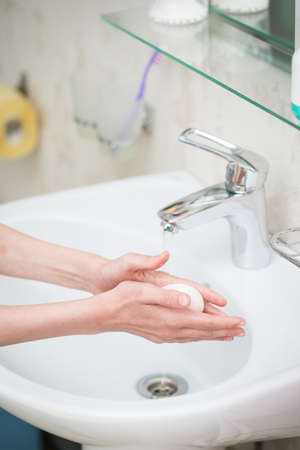Introduction to Feng Shui in British Bathrooms
Feng Shui, an ancient Chinese practice centred on harmonising energy within living spaces, has found its way into homes across the UK, including the most private of spaces—the bathroom. At its core, Feng Shui seeks to balance elements such as water, wood, metal, earth, and fire to promote well-being and positive energy flow. When considering British bathrooms, these principles must be thoughtfully adapted to suit both traditional architectural features—think Victorian terraced houses with their compact layouts—and contemporary design trends favouring open-plan and minimalist aesthetics. While bathrooms are often overlooked in Western homes, their role in affecting household energy is significant according to Feng Shui wisdom. The unique challenges posed by typical UK bathroom layouts, such as limited natural light or proximity to bedrooms and kitchens, require a sensitive blend of tradition and modernity to avoid common pitfalls and create a space that is not only functional but also energetically balanced.
2. Placing the Bathroom Door Opposite the Front Door
In traditional Feng Shui, the alignment of doors plays a pivotal role in channelling positive energy (Qi) throughout the home. One common layout error seen in many British houses—especially Victorian terraces and Edwardian semis—is positioning the bathroom door directly opposite the front entrance. This arrangement is particularly problematic within the context of Feng Shui principles and carries specific challenges given typical UK architectural designs.
Why Does This Layout Disrupt Qi?
When the bathroom door faces the front door, it creates a direct pathway for Qi to escape as soon as it enters the home. In essence, any fresh, auspicious energy brought in through your main entrance is instantly lost, carried away by the draining nature of the bathroom—a space traditionally associated with waste and cleansing. Over time, this can lead to a sense of stagnation or lack of prosperity for household members.
The Challenge in UK Homes
Many British homes—particularly older builds—have compact layouts where internal doors are closely aligned due to spatial constraints. It’s not uncommon for a downstairs cloakroom or even a main bathroom to be sited directly across from the front door, especially after renovations intended to add modern conveniences without reconfiguring core structure.
Common Effects of This Layout:
| Disruption | Impact on Home |
|---|---|
| Loss of Positive Energy | Qi enters but quickly escapes, reducing overall vitality |
| Sense of Instability | Household may feel less settled or harmonious |
| Poor First Impressions | Visitors are greeted by a utilitarian space rather than a welcoming hall |
Culturally Appropriate Solutions for UK Households
- Add a Divider: Position a decorative screen or bookcase between the front door and bathroom entrance to buffer escaping energy without major renovation.
- Keep Doors Closed: Cultivate a habit of keeping the bathroom door firmly shut; this is an easy fix that aligns with both Feng Shui and British sensibilities about privacy.
- Use Rugs and Mats: Place a substantial mat in the entryway; textiles help anchor Qi and create visual separation between zones.
- Enhance with Greenery: Add potted plants near the entryway to revitalise incoming energy and soften stark lines between doors—a nod to classic British gardening traditions.
- Utilise Mirrors Thoughtfully: If possible, angle mirrors so they reflect light but do not directly face either door, preventing further loss of Qi while amplifying brightness in typically narrow British hallways.
By blending traditional Eastern principles with practical British design adaptations, homeowners can preserve harmony and positive energy flow—even within challenging layouts commonly found across the UK.
![]()
3. Improper Mirror Placement and Its Consequences
Mirrors are a staple in every British bathroom, yet their placement often goes unchecked from a Feng Shui perspective. One common misstep in UK homes is positioning mirrors directly opposite the bathroom door or facing the toilet. According to Feng Shui principles, such arrangements can reflect and double the negative energy associated with waste and drainage, inadvertently amplifying feelings of discomfort or restlessness in this private space.
Another frequent error is installing large mirrored cabinets that face each other or other reflective surfaces, creating an endless loop of energy. This effect can leave you feeling unsettled and scatter your focus — hardly conducive to relaxation or rejuvenation.
To remedy these issues, it’s advisable to avoid placing mirrors where they can reflect the toilet, drains, or doorways. Instead, consider angling your mirror so it captures natural light from a window or reflects pleasant features like plants or artwork. If moving the mirror isn’t practical, even something as simple as keeping the toilet lid closed can help contain negative energy.
For those with compact bathrooms typical of many UK homes, try using smaller mirrors rather than one dominant pane. This approach helps maintain balance without overwhelming the room’s energy flow. By thoughtfully considering your mirror placements, you ensure your bathroom not only looks tidy but also supports a harmonious atmosphere in line with both modern living and traditional Feng Shui wisdom.
4. Neglecting Natural Light and Ventilation
One of the most overlooked aspects in British bathroom design is the scarcity of natural light and adequate ventilation. Many traditional UK homes, especially those in terraced or period properties, feature small or even windowless bathrooms. While this may be a practical response to limited space, it can have negative implications from a Feng Shui perspective.
The Role of Natural Light in Feng Shui
In Feng Shui, natural light symbolises the flow of positive energy (Qi) and supports overall wellbeing. A lack of sunlight in the bathroom can lead to stagnant energy, creating an environment that feels damp, gloomy, and less inviting. In turn, this may impact the mood and health of household members.
Ventilation: More Than Just Fresh Air
Proper ventilation is essential not only for reducing moisture and preventing mould but also for allowing Qi to circulate freely. Stale or trapped air is believed to accumulate negative energy, which according to Feng Shui principles, could affect both physical health and emotional balance.
Common Problems in UK Bathrooms
| Issue | Feng Shui Impact |
|---|---|
| No windows or tiny frosted glass panes | Poor light flow, sluggish Qi |
| Lack of extractor fans | Trapped moisture, stagnant energy |
| Poor placement of mirrors (not reflecting light) | Missed opportunity to enhance brightness and Qi movement |
How to Remedy These Issues
- If possible, install larger windows or skylights to maximise daylight.
- Add high-quality extractor fans to boost airflow and remove dampness.
- Use mirrors strategically to reflect existing light and brighten dark corners.
- Choose light-coloured paints and tiles to create a sense of openness.
Cultural Note for British Homes
Given the unpredictable British weather and architectural quirks, achieving ideal lighting and ventilation can be challenging. However, even small changes—like using moisture-loving plants or regularly airing out the space—can support better energy flow. By respecting both traditional house features and Feng Shui wisdom, British homeowners can transform their bathrooms into healthier, more harmonious spaces.
5. Overlooking Colour Schemes Suitable for UK Bathrooms
When it comes to bathroom design, many British homes draw on traditional palettes of crisp whites, deep blues, or muted greys—echoing the cool tones of the local climate and the timeless elegance favoured in both period properties and contemporary abodes. However, these popular choices can sometimes clash with Feng Shui principles, which emphasise the balance of the five elements and the importance of warmth and vitality in spaces dominated by water energy.
While classic white bathrooms evoke cleanliness and simplicity, an overreliance on cold hues may inadvertently amplify a sense of sterility or emotional distance, something Feng Shui seeks to avoid. Similarly, the beloved navy blue—a staple in many UK interiors—can intensify the already dominant water element, potentially leading to feelings of overwhelm or lethargy.
Finding Harmony: Bridging Tradition with Feng Shui
The key lies in blending cherished British colour sensibilities with harmonious Feng Shui principles. Softening stark whites with creamy off-whites or gentle earth tones (think taupe or pale sand) introduces grounding energy without losing that fresh British aesthetic. For those drawn to blues, consider integrating lighter shades such as powder blue or pairing with warm accents like brass fixtures, wooden shelving, or textured textiles to restore balance and add a welcoming touch.
Modern Touches for Local Homes
Modern British interiors often embrace bold accent colours—sunny yellows or leafy greens—which are well-aligned with Feng Shui’s encouragement of natural vibrancy and life force. Incorporate plants where possible, or use towels and accessories in these uplifting shades to counterbalance cooler backgrounds. Avoid excessive use of black and dark grey, which can create a heavy atmosphere unless carefully offset by mirrors or natural light.
Practical Advice
Ultimately, when selecting bathroom colour schemes for UK homes, aim for a palette that feels both inviting and balanced. Consider how each hue interacts with light throughout the day and strive for combinations that marry the comfort of tradition with the positive energy flow championed by Feng Shui. This thoughtful approach ensures your bathroom remains both stylishly British and energetically harmonious.
6. Allowing Clutter to Accumulate
One of the most common Feng Shui pitfalls in British bathrooms is the tendency to accumulate clutter, often in the form of half-used toiletries, cleaning products, and various personal care items. This inclination to store a multitude of bottles, soaps, and cleaning sprays on windowsills, inside cupboards, or around bathtubs might be born out of practicality and a desire to be prepared for every eventuality—an admirable British trait. However, from a Feng Shui perspective, such accumulation stifles the free flow of energy (qi) within this already sensitive space.
According to traditional Feng Shui principles, bathrooms are places where energy can easily drain away; excessive clutter exacerbates this by creating stagnant pockets where negative energy accumulates. The visual chaos of scattered shampoo bottles and surplus loo rolls can subtly impact your mood, making it difficult for positive energy to circulate and bringing an undercurrent of unease to your daily routines.
To counteract this, adopt a minimalist approach that aligns with both modern design sensibilities and classic Feng Shui wisdom. Begin by regularly assessing the items you keep in your bathroom—discard expired products and consider whether you truly need multiples of similar items. Store only the essentials neatly in closed cabinets or baskets to reduce visual noise. Clever storage solutions, such as mirrored cabinets or under-sink organisers, can help maintain order while reflecting light and expanding the sense of space.
Furthermore, resist the temptation to use your bathroom as a catch-all for household cleaning supplies or bulk-buy bargains. Instead, designate a separate cupboard elsewhere in your home for such items. This simple act not only declutters your bathroom but also honours the room’s intended purpose as a tranquil space for cleansing and renewal—a cornerstone of good Feng Shui practice.
7. Conclusion: Creating a Harmonious Bathroom Space in the UK Context
In summary, achieving Feng Shui harmony in British bathrooms requires a thoughtful blend of traditional principles and an appreciation for local customs and architecture. While it’s easy to fall into common pitfalls—such as poor placement of water features, inadequate lighting, or cluttered storage—being mindful of these mistakes can truly elevate the sense of balance and wellbeing in your home. By embracing natural light where possible, ensuring good ventilation, and keeping the space tidy and free from unnecessary items, you respect both Feng Shui wisdom and British sensibilities for practicality and comfort. Remember that small changes, like adding greenery or choosing appropriate colours, can make a significant difference. Ultimately, the key lies in adapting classic Feng Shui guidelines to suit the unique features of British homes, from Victorian terraces to modern flats. With careful consideration and an open mind, you can create a bathroom that not only supports positive energy flow but also feels authentically British—a sanctuary that nurtures both body and spirit.


